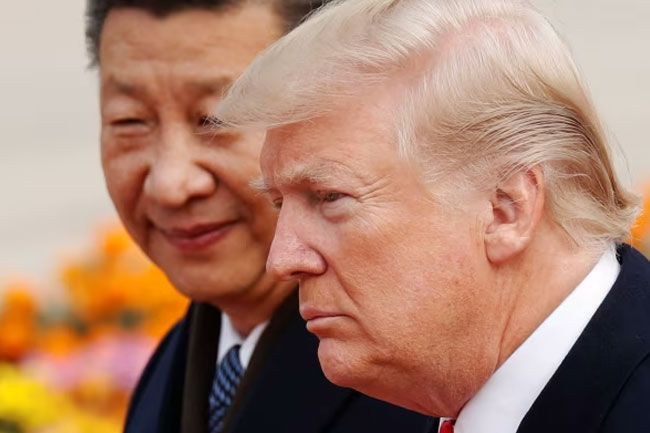Trump's Reversal on Foreign Aid: A Closer Look
In an unexpected twist, President Donald Trump's administration has reversed recent cuts to foreign aid programs. These moves, though swift, reveal underlying complexities affecting global humanitarian assistance.
Published April 10, 2025 - 00:04am

Image recovered from arabnews.com
In a surprising turn of events, President Donald Trump's administration has reinstated several recently canceled foreign aid programs, underscoring the intricate and tumultuous nature of U.S. foreign aid policies. This decision affects critical programs previously terminated under a budget-cut strategy orchestrated by Jeremy Lewin, acting Deputy Administrator of the United States Agency for International Development (USAID).
The administration's policy fluctuations have disrupted international humanitarian efforts, notably in regions including Lebanon, Syria, Somalia, and Jordan. The World Food Programme (WFP), one of the primary beneficiaries of U.S. aid, saw contracts worth over $463 million on the chopping block before they were hurriedly reestablished.
Six sources familiar with the matter reported that Lewin emailed staff directing the reinstatement of these awards, acknowledging the need to better balance the myriad stakeholder interests. This administrative back-and-forth highlights an enduring struggle within the U.S. governance structure to manage foreign aid's competing demands effectively.
The administration also restored several International Organization for Migration (IOM) projects, indicating a partial repair of relations with these humanitarian entities amidst Congressional pressure. This pushback from Congress came especially from the Senate Foreign Relations Committee Democrats, who criticized the aid termination as unconstitutional and improperly justified, urging a restructuring of the State Department that could integrate USAID more effectively.
While aid for countries ruled by contentious regimes, like Afghanistan's Taliban government and Yemen's Houthi-controlled territories, remains suspended due to concerns over misuse by local militant groups, the broader international response has been varied and critical. There are fears that the U.S.'s inconsistent aid policies could erode its global influence and credibility.
Notably, the rapid restoration of aid programs has not addressed deeper systemic issues within the U.S.'s approach to foreign aid. The aid community sees these vicissitudes as part of a larger pattern during Trump's presidency, marked by an attempt to overhaul and reduce the footprint of USAID.
This pattern includes the Trump administration's controversial decision, earlier this year, to disband large parts of USAID's operations purportedly to conserve resources and eliminate perceived inefficiencies. Critics argue, however, that such cuts disproportionately harm efforts to tackle acute humanitarian crises globally.
The hesitation to fully engage with regions under oppressive regimes, assessing aid impacts, and facing logistical challenges in delivering aid, reflect the complexities inherent in orchestrating international humanitarian assistance. These dynamics also point to the need for strategic frameworks that prioritize both humanitarian values and national security concerns.
As the world observes the current U.S. administration's manoeuvres in global aid, there's an ongoing debate about the adequacy and efficacy of current aid strategies. Analysts argue for more consistent policies that can adapt to the unpredictable demands of global crises while maintaining robust partnerships with other nations and international organizations.







